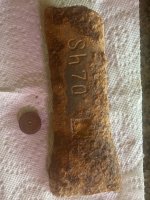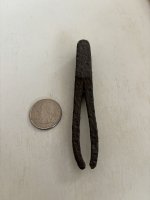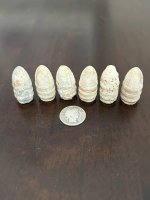Frankn
Gold Member
The short answer is NO. There are exceptions like quicksand, but I doubt you are T.H. in quicksand! If a coin is dropped on the ground, a certain amount of dirt is blown on it by the wind. A certain amount is shoved on it by passing people or animals but the main coverage is done by dying vegetation. The coin does not sink,it is covered. If gold, which is heavy, sunk in the ground there would be no placer gold. It would all be at the center of the earth by now. I have been on the beach and seen old coins sitting two inches above the beach on small "sand towers". The wind and tide had removed several inches of sand from the beach. When I dig here in Md. I can tell how long an object has been in the ground by the depth. It makes no difference how much it weighs. I found several objects on a past hunt that were between 3" and 4". I knew they had been in the ground since the mid 40"s in fact two pennies were dated early 40's. I found an ax head,very rusty, at 10+". I knew it had been in the ground for over 200 years. Areas with little vegetation get most coverage from wind and water. All right lay it on me, but back it up!!
Upvote
0






